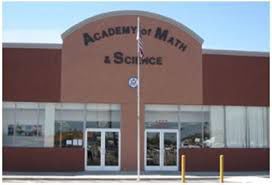PHOENIX — The state has awarded the first two loan guarantees to privately owned charter schools in a program that has raised legality questions.
The Academy of Math and Sciences is getting $24.8 million in what Gov. Doug Ducey calls “credit enhancements.” That will allow it to borrow money at lower rates to expand existing campuses in west Phoenix and south-side Tucson.
The Arizona Agribusiness and Equine Center is getting $17 million to expand an existing campus west of Phoenix and to build a new campus in Mesa.
The awards are the first since the Legislature agreed last year to set aside $100 million to help privately run charter schools borrow money at lower interest rates. The state is effectively guaranteeing that lenders will not miss payments.
The idea has been to give these schools — all with an A rating by the Department of Education — a chance to expand with below-market borrowing costs. Put simply, if the state agrees to make payments if the borrower defaults, the lenders are more likely to offer lower interest rates.
Tim Hogan, attorney with the Arizona Center for Law in the Public Interest, sees a real problem in what the state is doing.
The Arizona Constitution says it is illegal for the state to “ever give or loan its credit in the aid of ... any individual, association or corporation.”
“I think it’s a pretty straightforward application of the literal language of the constitution,” Hogan said.
“The constitution is quite clear,” he continued. “Period. End of story.”
Now that the state has extended its credit, grounds have been created for litigation, Hogan said. He said he’ll study the issue further before deciding what to do.
He isn’t the only one with questions.
Sen. Steve Farley, D-Tucson, said he also believes the state’s actions run afoul of the constitution.
When the legislation was first being proposed a year ago, Richard Stavneak, staff director of the Joint Legislative Budget Committee, was asked about the constitutional provision.
“That’s a sort of open legal question,” he said at the time.
Gubernatorial press aide Daniel Scarpinato said the loan guarantees are available to both traditional public schools as well as charter schools.
The latter are technically public schools because they cannot charge tuition and are not supposed to discriminate in deciding who attends. But they are exempt from many regulations that apply to traditional schools. And charter schools are privately owned and can be operated as for-profit corporations.
Stavneak said at the time that regular public schools don’t need the guarantees because any money they borrow is backed by a tax on residents. So they already get good bond ratings and the lower interest rates that follow.
Ducey made no mention of potential constitutional questions in his prepared statement touting the first two loan guarantee awards, saying he wants to help high-performing schools have access to the capital they need to expand.
“Through this program, we are broadening access to in-demand high-performing schools and giving students and their families more public school options in their neighborhoods,” the governor said.
Scarpinato downplayed the possibility that taxpayers could be on the financial hook if a charter school defaulted on its state-backed loan.
“We’re starting with the cream of the crop of schools,” he said. “In order to even qualify you have to be academically A-rated. And there’s a high correlation between schools that are exceptional from an academic standpoint and are financially on solid footing.”
And if there were a default? “We don’t envision the hypothetical situation you’re outlining happening,” Scarpinato responded. But if it did, he said there would be a lien against the property which then would be sold or transferred to another charter school operator.
In the interim, the state would make the payments. Only after that sale would proceeds be used to repay the fund.
Scarpinato dismissed the idea the state would ever have to dip into the fund, saying schools are required to have collateral or a financial “cushion” pledged against the amount borrowed.
“So we don’t think there’s risk to the state at all financially from this,” he said.
And he said if no one defaults, “we’ve got a pool of dollars that just sit there and gain interest.”
That leaves the state as the guarantor of the loan, putting it, as Hogan said, in the position of lending its credit to help the charter school get a lower interest rate.
Joe Thomas, president of the Arizona Education Association, said his organization shares some of the legal questions.
“We certainly want to review it,” he said. “We want to keep our eyes on it.”
He said questions about the program go beyond the constitutional issues.
“It’s another example of special legislation being written to favor charters over district schools,” he said, pointing out that district schools really would get no financial benefit from such a guarantee.
The awarding of the loan guarantees to help charter schools expand comes as traditional public schools are set to file suit Monday against the state for failing to meet its constitutional obligations to provide adequate dollars for building construction and maintenance.





